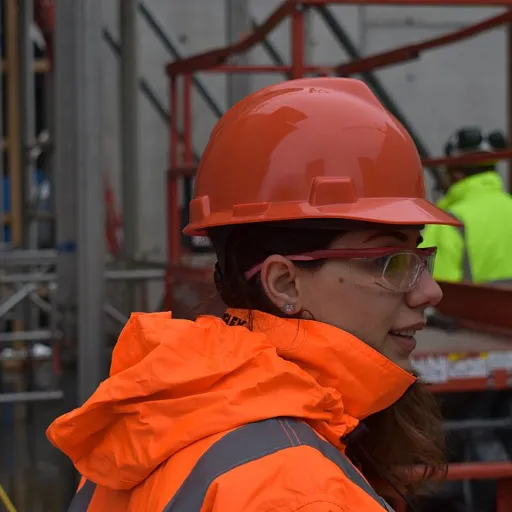
Green Leadership: The Office Manager's Role in Sustainability
Empowering Sustainability Through Green Leadership
Office managers today hold the pivotal role of adopting and advocating for sustainability practices within the workplace. They are well-positioned to lead the charge, paving the way for an eco-friendly office environment. By exemplifying green leadership, these unsung heroes can influence the organization's cultural shift towards a more sustainable future. Their leadership can include the adoption of green procurement policies, the enhancement of waste management systems, and the implementation of energy-saving protocols.
Implementing Strategic Eco-Friendly Initiatives
Being in a unique position where operational control meets executive influence, office managers have the capacity to implement far-reaching eco-initiatives. These can range from setting up recycling stations to sourcing office supplies from sustainable vendors. Their strategic approach to office management is not only beneficial for the environment but also for the company's bottom line. By leading recycling programs and promoting energy conservation, they close the eco-efficiency gap, elevating the company's standing as an environmentally conscious entity..
Pioneering the Integration of Renewable Energy Sources
With a detail-oriented lens and an analytical mindset, office managers can assess the feasibility of integrating renewable energy sources such as solar panels or green energy contracts. They have the expertise to manage the logistical aspects of such transitions, ensuring seamless integration into the existing infrastructure without disrupting daily operations. Championing renewable energy not only cuts costs but also drives the office's commitment to sustainable practices and reduces the carbon footprint.
Creating an Eco-Conscious Workspace
Office managers are ambassadors of environmental responsibility. By personalizing workspaces with plants and ensuring plenty of natural light, they can create a healthier and more inviting office atmosphere. It's remarkable how these seemingly small touches can ignite a passion for sustainability among employees, fostering a collaborative spirit in promoting a culture of environmental responsibility. The ripple effect is evident as team members become more eco-conscious, often taking these ideals beyond the office, thus spreading the impact of green office initiatives.
Optimizing Resource Management
Office managers play an analytical role in optimizing resources to enhance sustainability. This involves meticulous monitoring and management of office supplies, energy usage, and even digital resources to prevent wasteful practices. By embracing smart technology such as energy-efficient lighting and appliances, they can significantly reduce the office's energy consumption, setting a benchmark for measuring success in sustainable initiatives. Ultimately, thoughtful resource management is a strong indicator of an office’s commitment to eco-efficiency and the health of our planet.
Bridging the Eco-Efficiency Gap: Office Managers as Agents of Change
Empowering Sustainable Transformations
Office managers are in a unique position to drive sustainable practices within the modern workplace. By leveraging their pivotal role, they have the capabilities to bridge the eco-efficiency gap, acting as catalysts for transformative change. These change agents can make significant strides by introducing energy-efficient equipment and advocating for waste reduction programs. Staying abreast of trends in renewable resources, they can recommend investments that ultimately lead to long-term cost savings and environmental benefits.
Creating Eco-Conscious Spaces
One of the office manager's many responsibilities is the maintenance of the office environment. By focusing on space utilisation and introducing green living elements, such as indoor plants and natural light optimization, they can create not only a more eco-friendly space but also a more productive and healthier workspace. Encouraging the use of eco-friendly materials in office supplies contributes to a lighter ecological footprint and sets a standard for responsible consumption.
Implementing Green Policies and Procedures
Another sphere where office managers can shine is in the realm of policy-making. By developing and enforcing green policies, they ensure that conservation efforts are not just a trend but a norm within the corporate structure. Whether it’s instituting a company-wide recycling program, regulating thermostat settings for energy conservation, or digitalising documents to reduce paper waste, office managers have the authority and influence to institutionalise these practices.
Encouraging Employee Engagement in Sustainability
Fostering a workplace culture that values sustainability starts at the individual level. Office managers are uniquely positioned to educate staff on environmental issues and inspire them to participate in green initiatives. Through workshops, environmental challenges, and incentives for eco-friendly commuting options, they can involve employees in sustainability programs, making it a shared goal. This participation not only boosts morale but also amplifies the company's commitment to environmental stewardship.
Tracking Green Milestones and Metrics
To really understand the impact of sustainability efforts, office managers must track progress through key performance indicators (KPIs). By monitoring metrics such as energy consumption, recycling rates, and paper usage, they can provide quantifiable data on the effectiveness of green initiatives. This numerical evidence is vital in replicating successful strategies and making informed decisions about future sustainability programs. Additionally, it serves as a powerful communication tool to stakeholders interested in the company's eco-friendly evolution.
Promoting a Culture of Environmental Responsibility
Instilling Eco-Consciousness in the Workplace
Office managers are pivotal in nurturing an organizational culture that prioritizes environmental stewardship. By embodying eco-conscious behavior, they can set a profound example for colleagues, encouraging the adoption of green habits. It starts with simple, everyday actions such as promoting the use of digital documents over paper, ensuring recycling bins are accessible, and advocating for energy-efficient office equipment. Office managers can also leverage team meetings and communications to highlight the importance of individual contributions to the company's overall sustainability goals.
Developing Green Policies and Incentives
To promote a culture of environmental responsibility amongst employees, office managers can also play an integral role in developing and implementing green policies. These policies may include reducing energy consumption, minimizing waste, and promoting the use of sustainable materials. Introducing eco-friendly incentives can further galvanize staff participation. Recognizing and rewarding green behaviors not only motivates employees but also embeds a sense of pride and personal investment in the company's environmental initiatives.
Facilitating Sustainable Knowledge and Training
Continuous education is crucial to staying abreast of sustainable practices. Office managers can organize workshops and training sessions focused on eco-friendly procedures and advancements in sustainability. Bringing in experts to speak on topics such as waste reduction strategies, energy conservation, and the benefits of a circular economy can enhance employees' knowledge, inspiring them to innovate new ways to contribute to the company's sustainability objectives.
Cultivating Partnerships for a Greener Future
External partnerships with environmental organizations and other businesses committed to sustainability can expand the impact of a company’s green policies. Office managers are in a unique position to foster these collaborations, which can lead to mutually beneficial outcomes that propel the eco-friendly workspace movement. Through such partnerships, companies can share best practices, launch joint initiatives, and create broader community engagement in sustainability efforts.
Integrating Technology for Environmental Tracking
Assessing the effectiveness of sustainable initiatives is critical. Office managers can harness the power of technology to track the company's environmental footprint. Data-driven tools can measure metrics such as paper usage, energy consumption, and recycling rates. Keeping accurate records not only quantifies the progress in sustainability but also highlights areas for improvement, driving continual advancement in office eco-efficiency.
Measuring Success in Sustainable Initiatives
Tracking Progress with Eco-Friendly Metrics
In the grand scheme of office management, defining and measuring success in sustainability initiatives is as crucial as the initiatives themselves. Office managers must establish clear, attainable goals and track progress against them. Utilizing eco-friendly metrics and setting benchmarks allow for quantifiable assessments, enabling an organization to gauge the effectiveness of its green strategies over time. For instance, an office manager might keep track of a reduction in paper usage through the implementation of digital documentation systems or measure energy savings from switching to LED lighting.
Implementing Green Reporting Standards
To foster transparency and accountability, it's essential to implement green reporting standards. Office managers should aim to create regular sustainability reports that highlight achievements, outline areas for improvement, and set new targets. By citing numerical sources such as the percentage of recycled waste or the kilowatt-hours saved due to energy conservation measures, office managers can paint a compelling picture of their sustainability efforts.
These reports not only serve as an internal tool for continuous improvement but can also be shared with stakeholders and clients to demonstrate the company's commitment to environmental stewardship.
Utilizing Technology for Sustainable Management
Technology plays a pivotal role in driving sustainable practices within workspaces. Smart systems can automate and optimize energy consumption, while cloud-based platforms can enhance collaboration and reduce the need for physical resources. Office managers are instrumental in selecting and adopting these technologies, ensuring that they align with the sustainability objectives of the company.
In-depth analytics provided by smart building technology can give insights into energy usage patterns, helping to pinpoint opportunities for further eco-efficiency improvements. Meanwhile, the use of task management tools can streamline office operations, cutting down on resource wastage and boosting productivity.
Fostering Collaborative Efforts for Broader Impact
Success in sustainability often depends on collaborative efforts. Encouraging a shared sense of responsibility among employees can amplify the impact of green initiatives. Office managers can organize cross-departmental sustainability committees or eco-challenges to engage staff, encourage idea-sharing, and foster a teamwork-driven approach to environmental issues. Through these collective endeavors, the successes in sustainability are not just the result of one person's efforts but a testament to the united efforts of an entire office striving towards eco-friendly excellence.
By applying analytical rigor and focused attention to the detail and impact of sustainability initiatives, and sharing these insights through thought-provoking, instructional reports, office managers can not only demonstrate their passion for the environment but also lead their company towards a greener future with measurable results. Remember that the path to mastering sustainable practices is ongoing, and each step taken, no matter how small, contributes significantly to the larger goal of environmental conservation.



